Ryosuke Nishida and Noritoshi Furuichi Discuss "Young People and Work in Japan" in the U.K.
Yui Ishikawa (The Japan Foundation, London)
Tomoko Nakamura (Europe, Middle East, and Africa Section, Japanese Studies and Intellectual Exchange Dept.)
Expressions such as otaku, parasite single, and freeter emerged in the 1990s, while hikikomori and NEET emerged in the 2000s. These were examples of various social categories that were created to describe the behavior and mentality that were taken to be characteristic of young people in Japan. In A Sociology of Japanese Youth: From Returnees to NEETs (Roger Goodman, Yuki Imoto, and Tuuka Toivonen, eds. 2012. Routledge), which takes a constructionist approach toward the analysis of these youth problems in Japan, the editors pointed out that, in exploring youth problems from a sociological approach in a comprehensive way that also incorporates a comparative perspective, Japan provides a rich testing ground that is unparalleled by any other country. At the same time, it is important to understand why specific youth problems emerge during specific periods in Japan, and what type of socioeconomic situation it is that has an impact on the Japanese youths of today.
With the aim of facilitating greater understanding of Japan's socioeconomic situation through its youths, Dr. Ryosuke Nishida and Noritoshi Furuichi delivered seminars in London and Sheffield in the U.K. from November 10 to 13, 2014. Nishida, known for his works on Internet elections and workless youths, is Associate Professor at the Graduate School of Core Ethics and Frontier Sciences, Ritsumeikan University. Furuichi, a graduate student of The University of Tokyo (doctoral course), is the author of Zetsubo no Kuni no Kofuku na Wakamonotachi (Happy youth in a desperate country), which became a widely talked-about publication from the perspective of it being a theory about the young, by the young. This article will feature the seminar conducted at The University of Sheffield for its students. The session was moderated by Dr. Harald Conrad from The University of Sheffield.
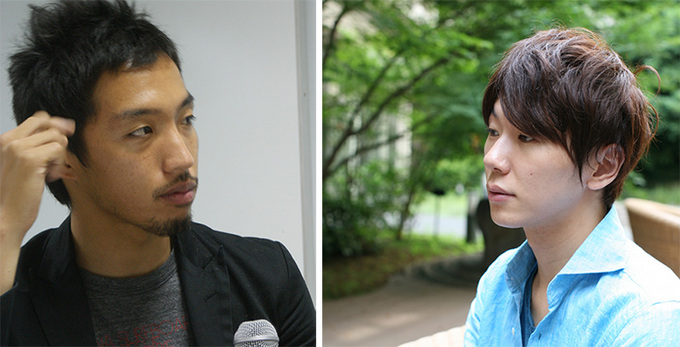
Left: Ryosuke Nishida, Right: Noritoshi Furuichi
Ryosuke Nishida spoke about Japan's "workless society." In economics, the definition of the completely unemployed is based on the premise that they are engaged in activities to seek employment. However, workless is different from unemployment; the former refers to a state that a person has a desire to work, but is not engaged in (or is unable to engage in) any voluntary job-hunting activities. While Japan's youth unemployment rate may be comparatively low from a global perspective, why is the problem of workless youth becoming increasingly serious? The problem of workless youth has a different premise and historical background from Europe, where youth unemployment issues are also growing problems. In Japan, workless youth is linked to a Japanese form of welfare that was formed at a time when there was a rich pool of young workers. It is also related to the Japanese form of management and employment culture that makes it difficult for those who have not succeeded in gaining a job upon graduation from university or dropouts to re-enter the labor market. Nishida provided a detailed introduction to the current situation in Japan, its policies, and the historical background to explain these concepts.
In Japanese society, where the labor market and welfare underwent gradual changes from the 1990s to the 2000s, it is difficult for the young, who lack political and social influence, to escape from a state of unemployment once they become workless. Regardless of that, it is said that society and policy planners have failed to gain an accurate understanding of the risks of such a situation and to put in place effective support measures. Nishida demonstrated an awareness that we should promote work on building a social theoretical platform, and on coming up with policy solutions for these issues.
Noritoshi Furuichi spoke about the young people of Japan and entrepreneurship, in particular, social entrepreneurship. From a period where the young started their own businesses as they were unable to find work at corporations, through a time when people held the widespread value that having a "good life" was to work as an office employee and earn a stable living, "entrepreneurs" have been regarded as a sign of new hope after the bubble economy burst. During the same period, society began to develop an Internet and IT environment, and the government and economic organizations recommended youths to take up entrepreneurship. However, the birth of many innovative entrepreneurs has been linked to the development of competitive relationships with companies that have existed from the past. According to Furuichi, this state in which the new and old Japan confronted one another is symbolized by the entrepreneur Takafumi Horie, and he dubbed this situation as the "Livedoor Shock."
Social entrepreneurs have drawn much attention for the following three factors. First, entrepreneurs such as Horie, who were focused on making money, began to be perceived in a negative light. Second, there was a rise in the number of youths who were interested in social action. Third, it has become difficult for the government to provide adequate welfare for the citizens, and conversely, easier for social entrepreneurs to respond to the diversifying problems and needs of citizens. Furthermore, Furuichi also pointed out that rather than simply commending entrepreneurs and social entrepreneurs, society should consider what it could do to provide them with the necessary support.
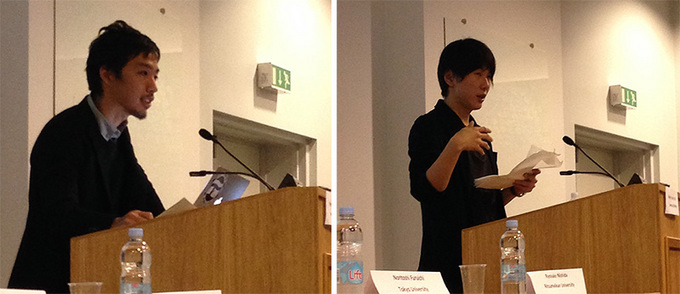
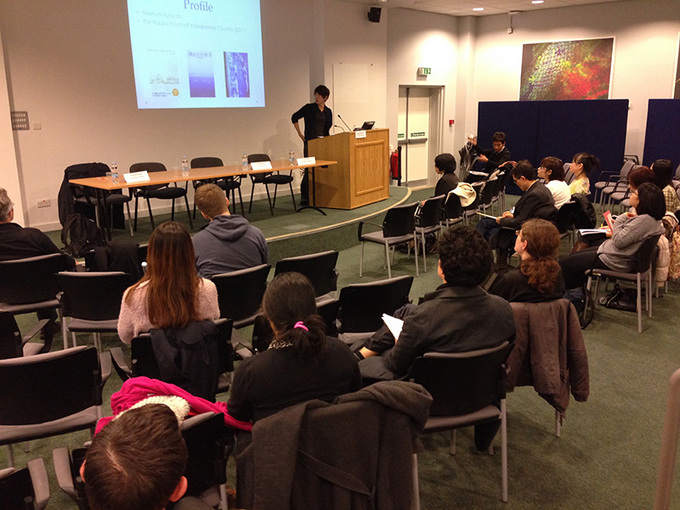
After listening to the lecture delivered by the two guests, Conrad commented that the presentations by Nishida and Furuichi shared a common point in the aspect that they are set against a background of similar framework problems. He explained that there is a construct in which workless youths are perceived as "outcasts" or "victims," while entrepreneurs are regarded as "unpopular people" or "saviors." This framework becomes something completely different depending on the era and the perspective of the person looking at it. With these comments, he then proceeded to conduct the question-and-answer session.
Q. Graduate student from the School of East Asian Studies: In the U.K., entrepreneurs can receive support for start-ups in the form of tax credits and subsidies, as long as they fulfill certain criteria by employing a certain number of employees and creating jobs. What kind of support does the Japanese government provide?
A. Furuichi: The government also provides support in Japan. However, many entrepreneurs utilize the subsidies provided by the local government, which amounts to approximately 1 million yen. Support that is worth a high monetary value is rarely available. Preferential tax measures are available, but many of these are targeted at small companies run by self-employed entrepreneurs, rather than at large companies.
Q. Japanese Studies researcher: Mr. Nishida, in your presentation, you mentioned that the unemployment rate among the young people of Japan is estimated to be about 6%. A youth employment rate of 94% is considered to be a very high proportion in comparison with the OECD average. From a European perspective, I think there are things that many countries around the world can actually learn from Japan in the area of youth employment.
A. Nishida: In Japan, there is the possibility that females have not been included in the parameter, as they do not participate in job-hunting activities to begin with. Although Japan has a low unemployment rate in terms of percentages, it has been pointed out that the number of workless youths (not unemployed youths) stands at 600,000 people, and there are also OECD estimates that hypothesize that potentially, a maximum of 4 million people could be workless. As Japan is a country with a high population, the number of people could be large even if the percentages are low.
Q. Japanese Studies researcher: It has been pointed out that Europe is becoming more rightist, as demonstrated by the rise of the UK Independence Party (UKIP) in the U.K. and the Front National in France. Is there a similar trend in Japan? Is there a relationship between an increase in the number of workless people and growing conservatism/swing toward the right wing?
A. Nishida: I think this is a sensitive issue. While I do not know if there is a causal correlation, if we were to look purely at the facts, we would see that the period of economic downturn in Japan and the surge in debates on workless issues overlaps with the period of growing xenophobic discourse. While this may appear to be similar to the situations in France and Germany, I think that full validation is necessary. If asked, I do not necessarily feel that the whole of Japanese society is shifting toward the right, but discourse on the Internet appears to have swung toward the right. I am also engaged in research on online democracy. When I analyzed speech and behavior related to nuclear power generation, which is said to be becoming increasingly widespread, I found that despite a high volume of content, the number of people who are actually talking about it is extremely small. I believe that xenophobic speech and behavior would follow a similar structure.
Q. Conrad: In Japan, those who start working after graduating from university are called shakaijin (literally, "member of society"). Does this mean that those who do not do the same are not regarded as members of society? I think that the expression shakaijin is another framework that surrounds the young and old of Japan. What are your views?
A. Furuichi: Shakaijin, which describes those who have graduated from university in Japan, is a person whose label cannot easily be translated into English. Unlike in Europe, everyone enters a company at the same time. All students who graduate from university go through an orientation or initiation ceremony at their companies in April, signaling that they have become shakaijin. In addition to the fact that a freeter cannot be called a shakaijin, there is also a strange system in which those who are not full members of society (that is, shakaijin) are not eligible to receive various forms of support, and those who leave the system will find it difficult to become a shakaijin once again.
A. Nishida: I agree with Furuichi's perception. On top of that, when it comes to the kinds of changes that are called for, I think that there are two paths. One of these is the path of gradual change in the social norms associated with the concept of shakaijin, with changes that take effect without people noticing them. The other is the path of proactively taking steps to make changes that corporate society or Japanese society are aware of. Which of these is desirable? I think that the latter is, because if changes were to occur without awareness amongst the people as in the former, I think that the burden would be borne mostly by the weak. Changes in Japan that have occurred in the past have been the former type, in a repetitive process of constant gradual changes that led to changes in society before we realized it. Going forward, I think that it would be good if we could make a proactive choice and choose to be a tolerant society, where various working styles, such as the social entrepreneurs and NPO that are the subject of Furuichi's research, are accepted and recognized.
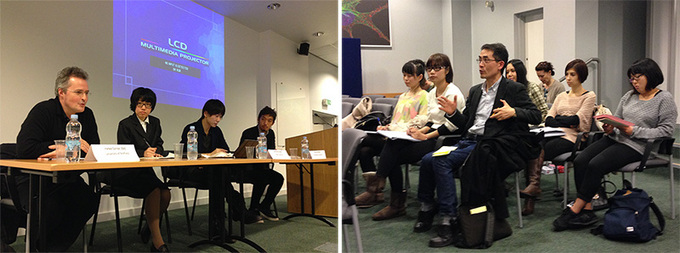
Enthusiastic question-and-answer session
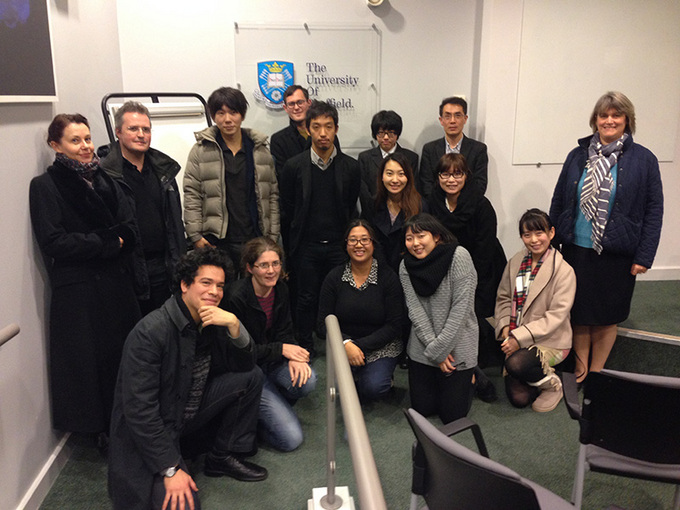
With the students
While the two guests discussed different topics at the session, the respective presentations complemented one another in the seminar based on the theme of "young people and work." Through the in-depth questions posed by mainly graduate students during the question-and-answer session, it was also clear that the young Japanese researchers have succeeded in communicating their views not only on the working environment for youths, but also on the potential challenges surrounding that, such as politics and social norms in Japan, as well as on the issue of declining birthrates and an aging society.
Keywords
- Economics/Industry
- Education/Children
- Social Securities/Social Welfare
- NPO/NGO
- Social Enterprise
- Japan
- Germany
- France
- U.K.
- The Japan Foundation - London
- Otaku
- Parasite Singles
- Freeter
- Hikikomori
- NEET
- Roger Goodman
- Yuki Imoto
- Tuuka Toivonen
- the Graduate School of Core Ethics and Frontier Sciences
- Ritsumeikan University
- Ryosuke Nishida
- Noritoshi Furuichi
- University of Tokyo (doctoral course)
- .London
- Sheffield
- Takafumi Horie
- OECD
- UK Independence Party
- UKIP
Back Issues
- 2025.9.30 The 51st Japan Found…
- 2025.9.30 The Japan Foundation…
- 2025.9.30 Bringing the World C…
- 2025.9.30 The 51st (2024) Japa…
- 2025.9.30 Japan Foundation Pri…
- 2024.5.24 The 50th Japan Found…
- 2024.3. 4 Movie Theaters aroun…
- 2023.4.10 The 49th Japan Found…
- 2023.3.28 JF's Initiatives for…
- 2023.1.27 Living Together with…

